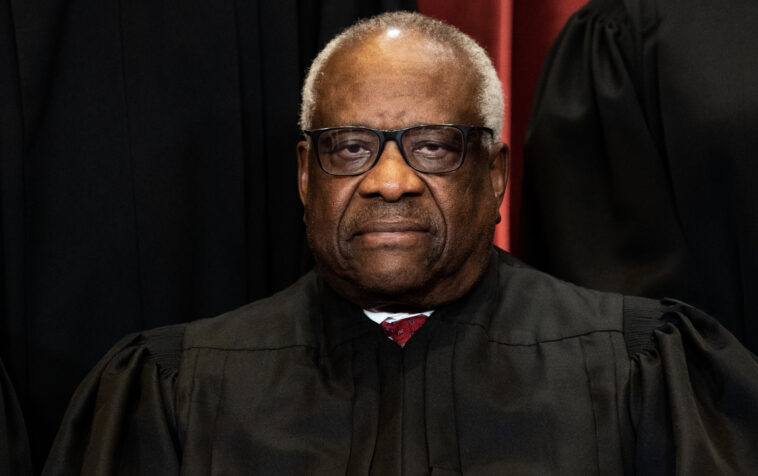It was noted that, in one case, Justice Thomas had devoted approximately seven pages of his concurring opinion on affirmative action to critiquing a dissenting opinion, a critique which he also read aloud near where the questioned justice was seated. In response to the inquiry about that experience, Jackson pointed out that dissents are a common occurrence on the court. The collective decision-making model allows justices the chance to express their individual views.
Advertisement
The explanation continued, stating that when in the majority, there is a majority opinion available for signature, but justices may also write separately to express their perspective on an issue or dissent if necessary. It was also mentioned that Justice Thomas’s concurring opinion addressed the disagreement, and this was interpreted as flattering since it meant that the issues brought up were thought important enough to address. The justices continue to converse with one another throughout the procedure.
Advertisement
In his concurring opinion on the 6-3 ruling, Thomas stated that he was concerned by Jackson’s perspective, which he described as reflecting a racist worldview. Chief Justice John Roberts’ decision invalidated racial preferences in college admissions. Thomas concurred that the admissions practices at Harvard University breached Title VI of the Civil Rights Act and that the University of North Carolina had infringed upon the Equal Protection Clause of the 14th Amendment.
Jackson argued in dissent that because race still affects the lived experiences of all Americans in various ways, the decision will worsen conditions for minorities.
Advertisement
It was remarked that, with an air of obliviousness reminiscent of let-them-eat-cake, the majority has now abruptly declared “colorblindness for all” by legal decree. However, it was emphasized that simply deeming race irrelevant in the law does not erase its relevance in everyday life. The Court, having distanced itself from the nation’s true historical and present realities, is now seen as obstructing essential efforts by institutions like UNC to address real-world challenges. It was argued that no one benefits from such ignorance.
Further, it was asserted that while legal barriers explicitly tied to race may have been eliminated, race continues to influence the lived experiences of all Americans in numerous ways, and today’s ruling exacerbates, rather than improves, the situation. The majority’s viewpoint was described as proceeding, like an ostrich, from the misguided hope that ignoring race would somehow end racism.
In his concurrence, Thomas stated that racialism cannot be countered by introducing different or additional racialism.
The senior justice then addressed the unsupported assertion made by his junior colleague that America is a fundamentally racist society. Thomas wrote that rather than addressing individuals as unique entities, the dissent focuses on the historical subjugation of Black Americans, using statistical racial disparities to advocate for defining and categorizing individuals by race. According to this perspective, society is seen as inherently racist, with the legacy of slavery and the historical oppression of Black Americans still influencing our lives today.
He criticized the proposed remedy, which involves unconditionally accepting the perspective of elite experts and redistributing societal resources based on race to level the playing field according to racial metrics. Thomas expressed strong disagreement with this approach.




